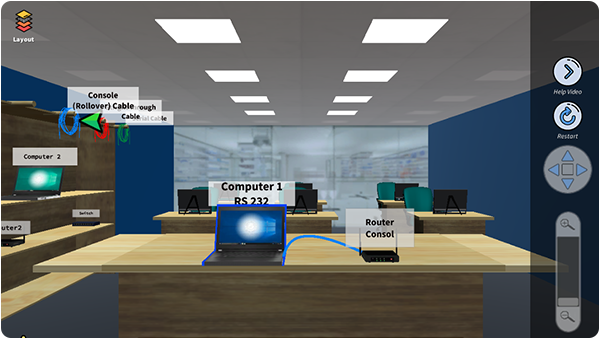The Deanship of E-Learning and Information Technology provides specialized E-Systems to deliver, manage, and monitor the educational process, serving beneficiaries both inside and outside the university for e-learning and distance education programs. The Deanship regularly conducts updates, maintenance, and provides the necessary licenses for these systems. The e-learning system includes the following:
- E-Learning Management Systems
- Asynchronous Learning Systems
- Synchronous Learning Systems
- Lecture E-Recording Systems
- Quality Assurance Systems and Monitoring of the Educational Process, including Reporting on the E-Learning System
- Tools for Developing Digital Electronic Content in Various Formats
- Tools for Developing Hologram Elements


The Deanship of E-Learning and Information Technology provides 24 studios for recording live and recorded lectures, equipped with the latest technologies and equipment to capture all aspects of the lectures for students. These recordings can be browsed and replayed in best possible quality. Each studio contains a set of modern global systems and high-definition equipment for preparing, recording, and broadcasting lectures to students.


The Deanship of E-Learning and Information Technology provides hologram-imaging services to beneficiaries, which is considered advanced technologies that the university has integrated into its educational services. The purpose of this technology is to enhance the educational and training processes at the university, display exciting scientific experiences, and offer interactive simulation elements that engage learners. It ensures a high level of interactivity through advanced broadcasting studios and equipped spaces for hologram imaging, allowing for virtual attendance by experts and specialists in the fields of education and training, both locally and internationally.


The Deanship of E-Learning and Information Technology has employed virtual lab technology to cover laboratory experiments in the fields of physics, chemistry, biology, computer science, as well as medical and engineering disciplines. This aims to provide learners with additional experiences, allowing them to conduct experiments, gather data, prepare reports, and increase their engagement and scientific interest through experimentation and trial-and-error to reach scientific truths. This is achieved through virtual reality and simulation technologies in a virtual environment that mimics reality.


The Deanship of E-Learning and Information Technology employs Augmented Reality (AR) technology as a level of creating electronic courses and content. This technology offers a higher degree of interactivity and immersion, allowing users to engage with the content using mobile phones and smart devices. It provides diverse educational content for presentation through this technology.

